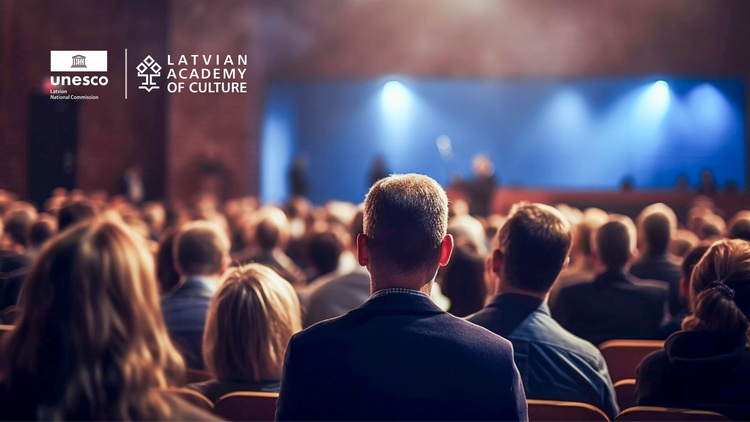
Call for Participation: International Conference on Artificial Intelligence and Cultural Diversity
To mark the 20th anniversary of the UNESCO Convention on the Protection and Promotion of the Diversity of Cultural Expressions, the Latvian Academy of Culture (LAC), in cooperation with the Latvian National Commission for UNESCO, is pleased to announce the international conference “Artificial Intelligence as a Source and Threat to the Diversity of Cultural Content: Perspectives of Artists, Audiences, and Policymakers.” The conference will take place on 6 November 2025 in Riga as part of the “Culture Crossroads XIX” series.
The conference will critically examine the role of artificial intelligence (AI) in shaping the future of culture and the arts. It will highlight AI’s potential to enrich cultural diversity while also addressing the challenges, risks, and ethical dilemmas that arise from its growing presence in creative processes, audience engagement, and cultural policy.
The conference will explore the impact of AI on the development of culture and the arts, with a particular focus on its potential to enrich cultural diversity while simultaneously posing new challenges and risks. Its aim is to communicate new knowledge – theoretical insights, empirical findings, and methodological reflections – on how digital environments and technologies influence artistic creativity, audience behaviour, and cultural policy instruments.
Conference themes resonate with global cultural policy debates grounded in the UNESCO Convention, ratified by Latvia in 2007. The Convention recognises the dual nature of cultural and artistic expressions as both cultural and economic values, and it sets out the guiding principles for policies and measures regarding the creation, production, distribution, and accessibility of cultural goods and services.
Given the challenges and opportunities created by AI systems, current work is focused on reinforcing and adapting the Convention’s principles, rights, and obligations in the digital environment.
Topics of interest include (but are not limited to):
•Preserving cultural diversity in the digital age: discoverability and accessibility of national and local content on digital platforms; availability of niche or community-specific content; fostering public interest in diverse cultural expressions; multilingual accessibility.
•The artist’s perspective: navigating between digital technologies, AI, and creativity; hybrid artistic practices; copyright issues and the use of protected works in AI training; AI and the labour market; education and skills development.
•AI in the cultural and creative sectors: emerging and disappearing professions; new skill demands; data sharing and database management; algorithmic recommendations as systemic barriers to diversity; regulation to reduce inequalities and support small market players; new remuneration and copyright models.
•AI in specific creative sectors: literature and publishing (including challenges for translators and illustrators); music (with risks for small market players); visual arts (redefining artistic practices).
•Transparency and accountability of AI in culture: perspectives of artists and audiences; safeguarding fair remuneration and copyright; audience access and algorithmic barriers.
Practical Information
•Abstracts (up to 250 words, in English) should be submitted by 20 September 2025 via the online submission form: https://forms.gle/tjCCZzzjmPs5T3aU7
•Notification of acceptance: 1 October 2025.
•Presentations: max. 20 minutes, followed by 10 minutes of discussion.
•Participation is free of charge. The conference is primarily planned as an on-site event in Riga, with possible options for online participation and livestreaming depending on submissions.
•Working language: English.
The conference will serve as a platform for academics, researchers, artists, policymakers, and cultural professionals to discuss the opportunities and challenges posed by AI for cultural diversity and to contribute to the international discourse on the future of the UNESCO Convention in the era of digital transformation.
Following the conference, participants will be invited to submit full papers for a special issue of the peer-reviewed, Scopus-indexed journal “Culture Crossroads”.
For any questions, please contact Aija Lūse, Coordinator of the “Culture Crossroads” conference series (aija.luse@lka.edu.lv).
